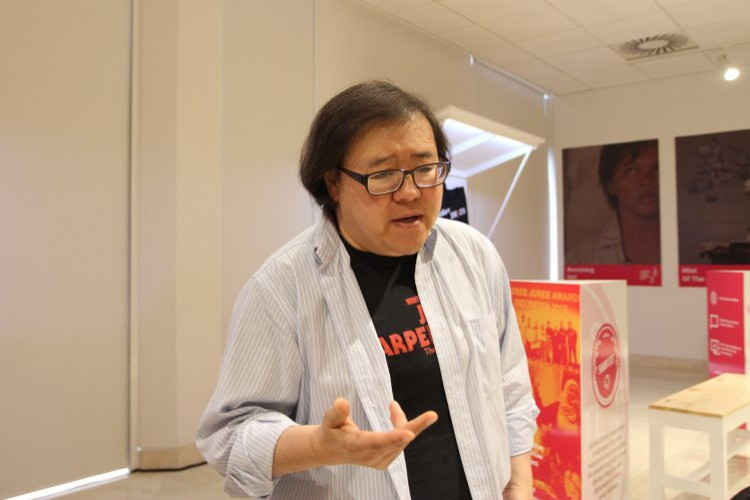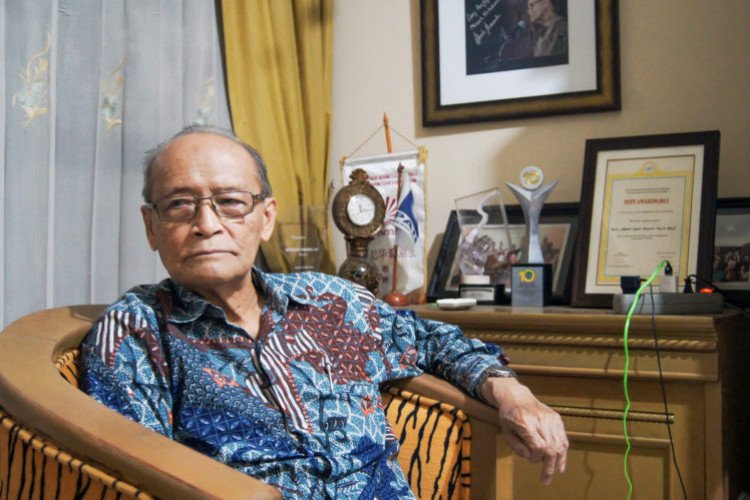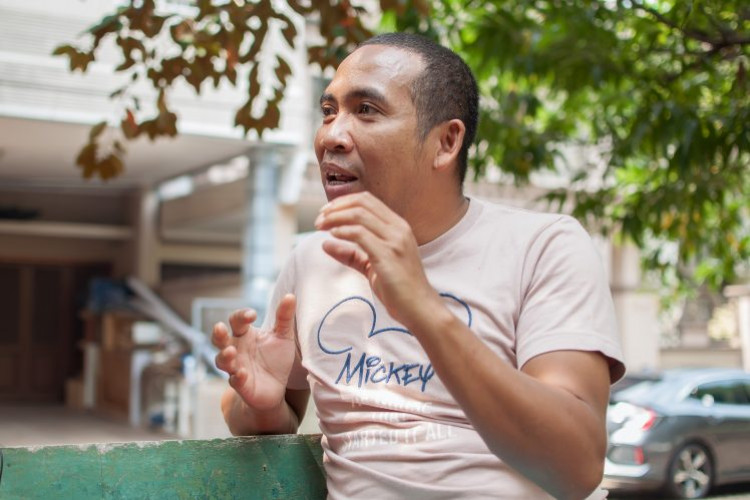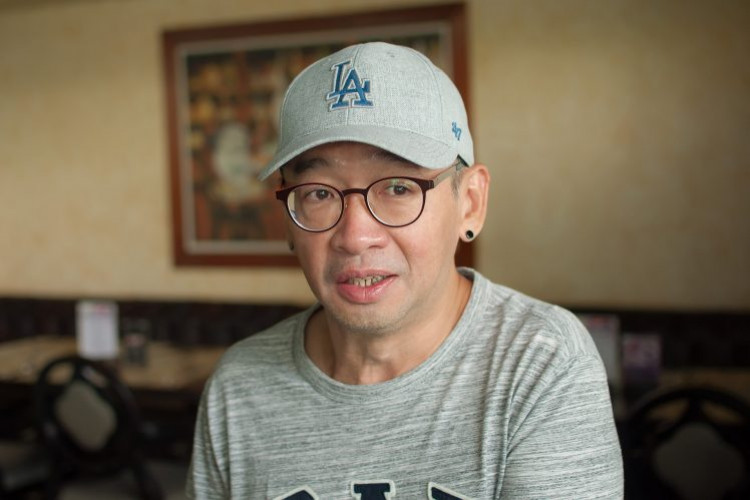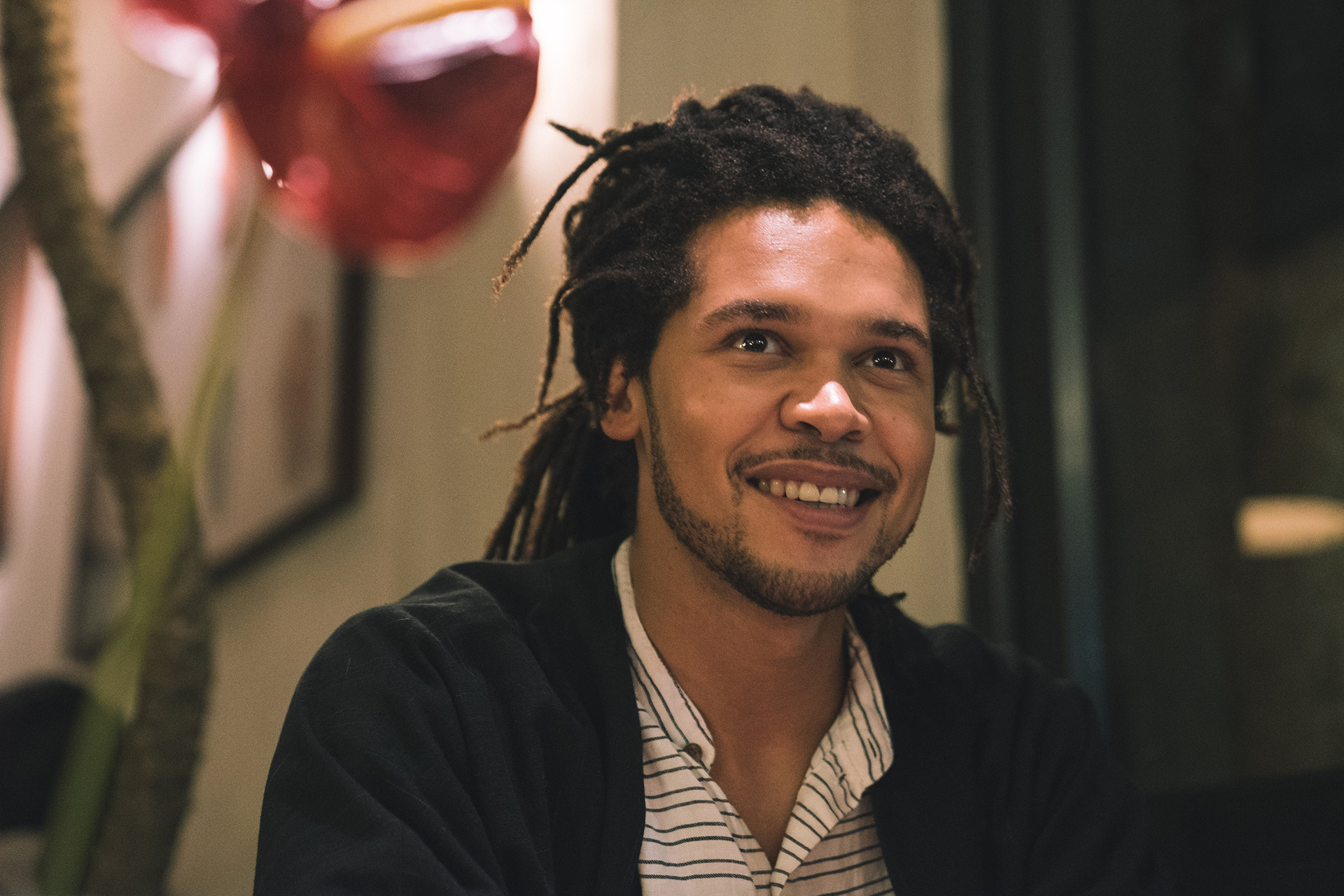
Bradley Zero on the “Peckham Scene”, Being a Selector and Rhythm Section
We caught up with Rhythm Section’s Bradley Zero to talk about being against booking headliners in his parties and working with young, upcoming artists.
Words by Ghina Sabrina
Initially started as a radio show in 2009, Rhythm Section has organically grown into one of London’s most-loved parties and then ultimately an international record label. Fronted by Peckham’s own Bradley Zero, his appreciation for music and interest in being a selector started early when he was just 9 years old. With Rhythm Section, he was focused on creating a party known for its diverse musical selection and inclusivity, while also creating a club night where it appreciates the atmosphere as opposed to a specific headliner. In collaboration with Studiorama’s takeover for Wave of Tomorrow, we met with Bradley ahead of his set to talk more about Peckham as an important aspect of Rhythm Section’s identity, signing your friends to his own label and his upcoming singing gig.
How did your career begin as a selector?
My dad is a DJ, so I’ve been playing music with him since I was 8 years old and it was always in the house and all his records would be all over and it just kind of came naturally. I would sometimes go with him to gigs and play in front of people for parties and family fun days when I was 9. I think some people, if they haven’t played and they’re considering starting to DJ is a very daunting thing and a very kind of scary thing to play in front of people and understanding how the equipment works and how to blend it. But I was playing with my dad’s CDJs and turntables when I was 9 years old, and I never thought of it like that. I would just be with my dad at a gig, and he’d say that he needed to go to the toilet and I would just play a few songs. So I started, in that sense, very early, but in terms of having my own taste, collecting my own records, and playing the way that I want to play and present myself, I started doing that when I was about 19. I start collecting records at the end of high school when I was 16-17 and I did my first gig in front of people in a nightclub situation on the second year of university.
Did your parents influence your music taste?
The first dance record I really got into was “The Prodigy Experience”. I was listening to that as an 11-year-old, and it’s not really meant for 11-year-olds. I got that from my dad. And then I used to just play on his decks and set the sound system a bit at home. And then eventually got into minimal techno when I was 15-16 through friends at school who had similar interests.
What was the reason behind the formation of Rhythm Section? Was it a solution to the lack of diversity within the local music scene in terms of music selections?
Rhythm Section as an idea began when I started a radio show. I just had this urge to share music and to do a regular program but I wanted to do it with a friend. So the friend that I started with, Rose, was a bass player. So that’s where the idea of Rhythm Section came from, it starts at the drums, then you play the bass and that’s the foundation of the musical building blocks. So that’s where it started. So then once I had this collective, then I had something to play with in terms of putting on events and eventually starting a record label. But it started as a radio show.
Was it your intention all along, making a record label?
Not really. I tend not to plan too far ahead. Which isn’t to say that I’m not passionate about what I’m doing or I don’t have ideas. But, I tend to stay focused on one thing at a time and take the opportunities as they come. So there was no idea to start a dance when I did the radio, no idea to start a label when I did the dances, it’s just a natural evolution. I think when you’re doing something that you really love, it doesn’t feel like a business, it doesn’t feel like a job. It’s nice to not really have a plan and just allow things to go naturally.
I think when you’re doing something that you really love, it doesn’t feel like a business, it doesn’t feel like a job.
Rhythm Section began as a radio show, then a party and ultimately a label. Could you talk to us a bit about its growth and how it has changed?
Although it’s definitely grown and expanded, it’s always stayed true to each step of the way. So I didn’t start the party and quit the radio show. I didn’t start the label and quit the party. And then I didn’t start doing Radio 1 and quit the dance. It’s growing, but keeping each step of the time. I think, as you get more experience and you go to different places and play for bigger crowds, you gain that kind of bigger arsenal. You know what to do in different situations, you know how to perform under different circumstances, but the core of what I do is a small party with the lights low and a group of people in Peckham where I’m from. That’s still where my heart is. It’s grown and it’s expanded, but at the core, I don’t think it’s changed.
But it’s also amazing to be able to use that identity – growing identity to be able to give other people a platform. To be able to share that music in places you’d never imagine. When I started a radio show on a local Peckham youth station, if you’d told me in 9 years I would be performing in Indonesia, I would’ve laughed. And here I am. So I think sometimes not having a plan is the best plan. Just go along and be passionate on each step of the way, and surprise yourself with what would happen.
Peckham seems like an important aspect of Rhythm Section’s identity. Could you describe the Peckham vibes for us from your perspective?
It’s changed a lot. When I moved to Peckham which was 10 years ago, it was a very different place to what it is now, because people didn’t want to live there. It was a place where if you told people that you were moving to Peckham, they’d be like “really? You’re sure? You’re going to be okay?” It was kind of a no-go zone for a lot of people, certainly for people who grew up in North London or people who only heard about the cool places to be, because it wasn’t a cool place to be. So what happened is that people who moved there kind of started a community there, it just became this tight-knit local spot with lots of friends who knew each other and hung out, and where there wasn’t really that much to do. There were no cool bars, there were no nightclubs, there were no fancy restaurants, we kind of have to make our own fun.
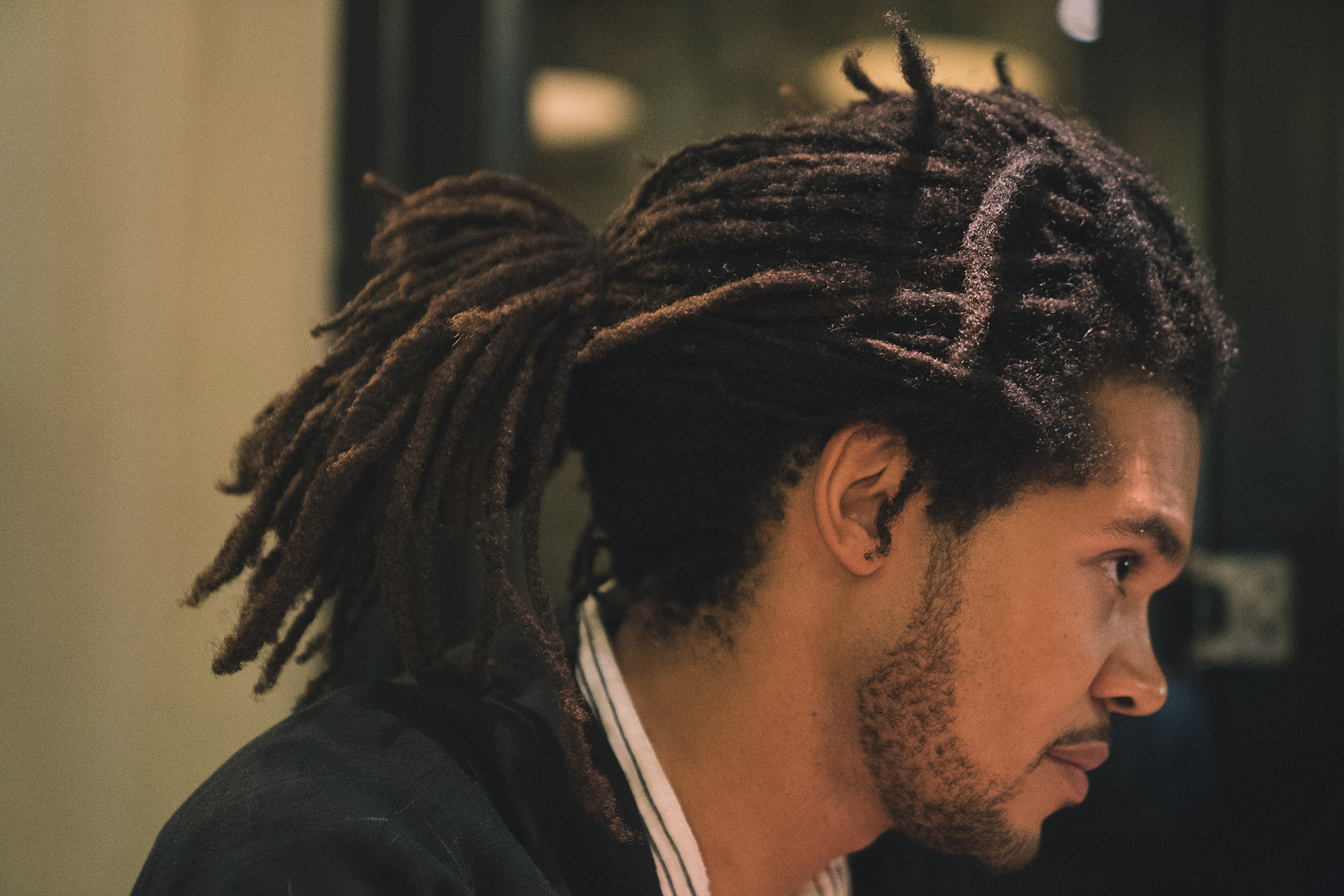
Foto: Moses Sihombing
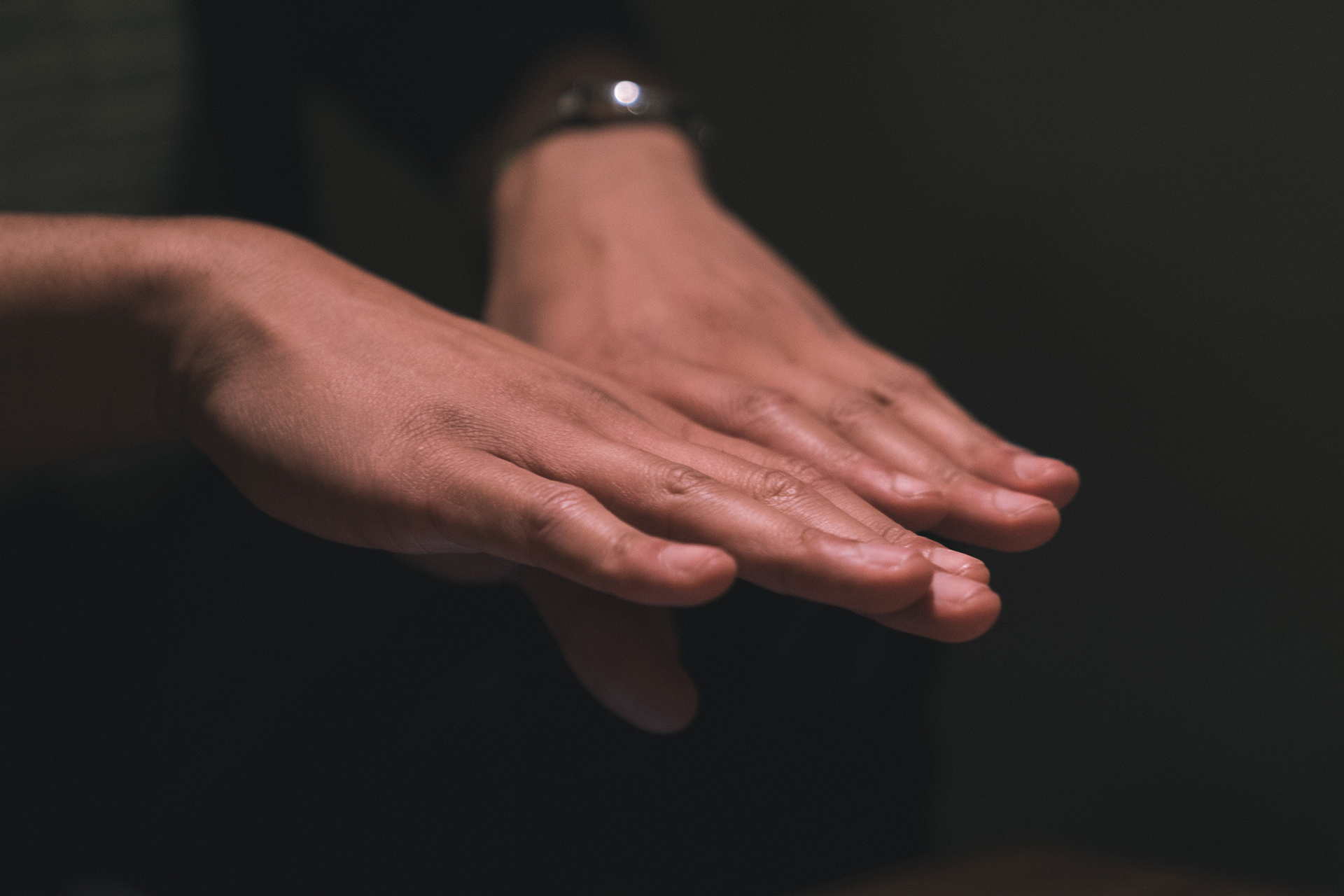
Foto: Moses Sihombing
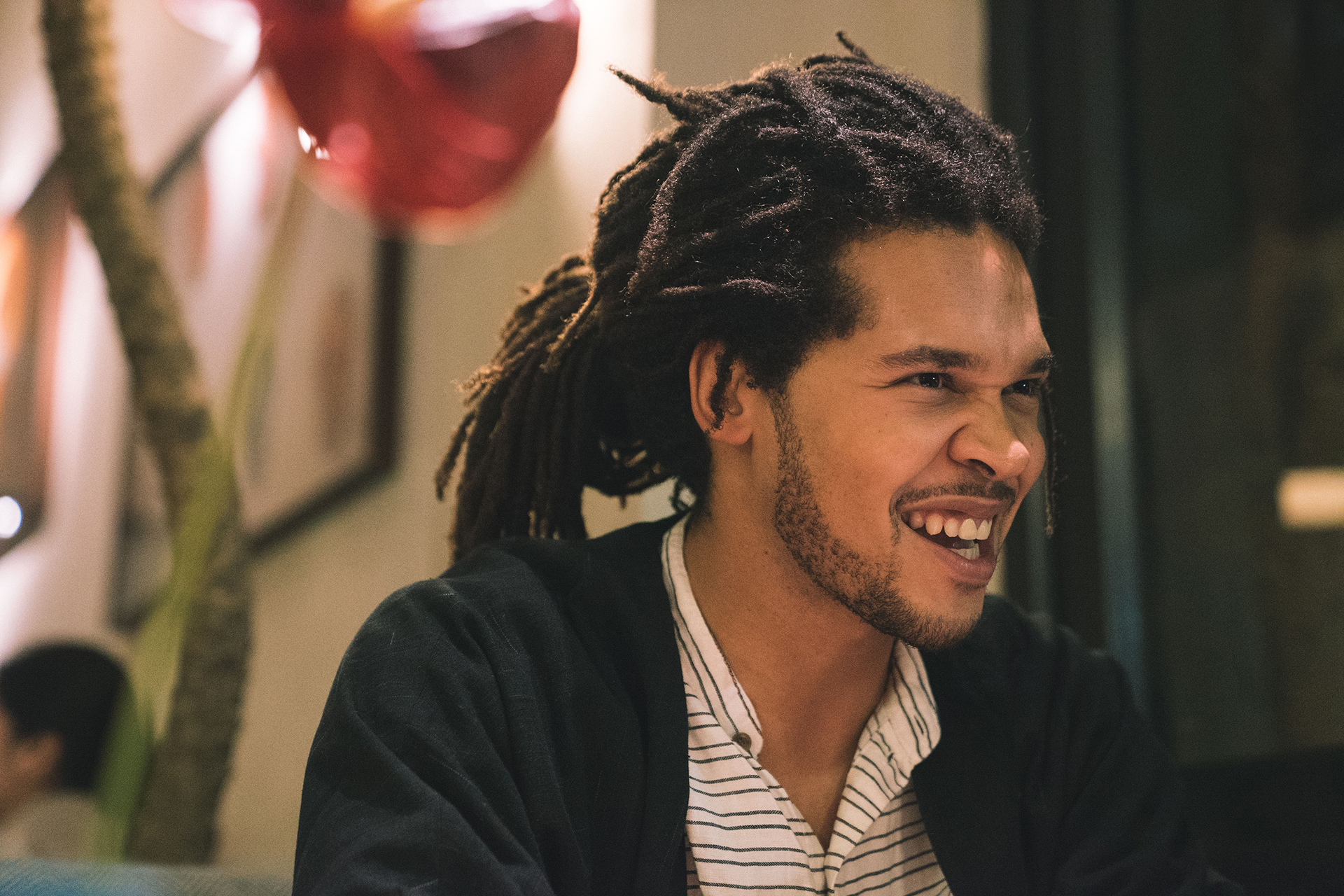
Foto: Moses Sihombing
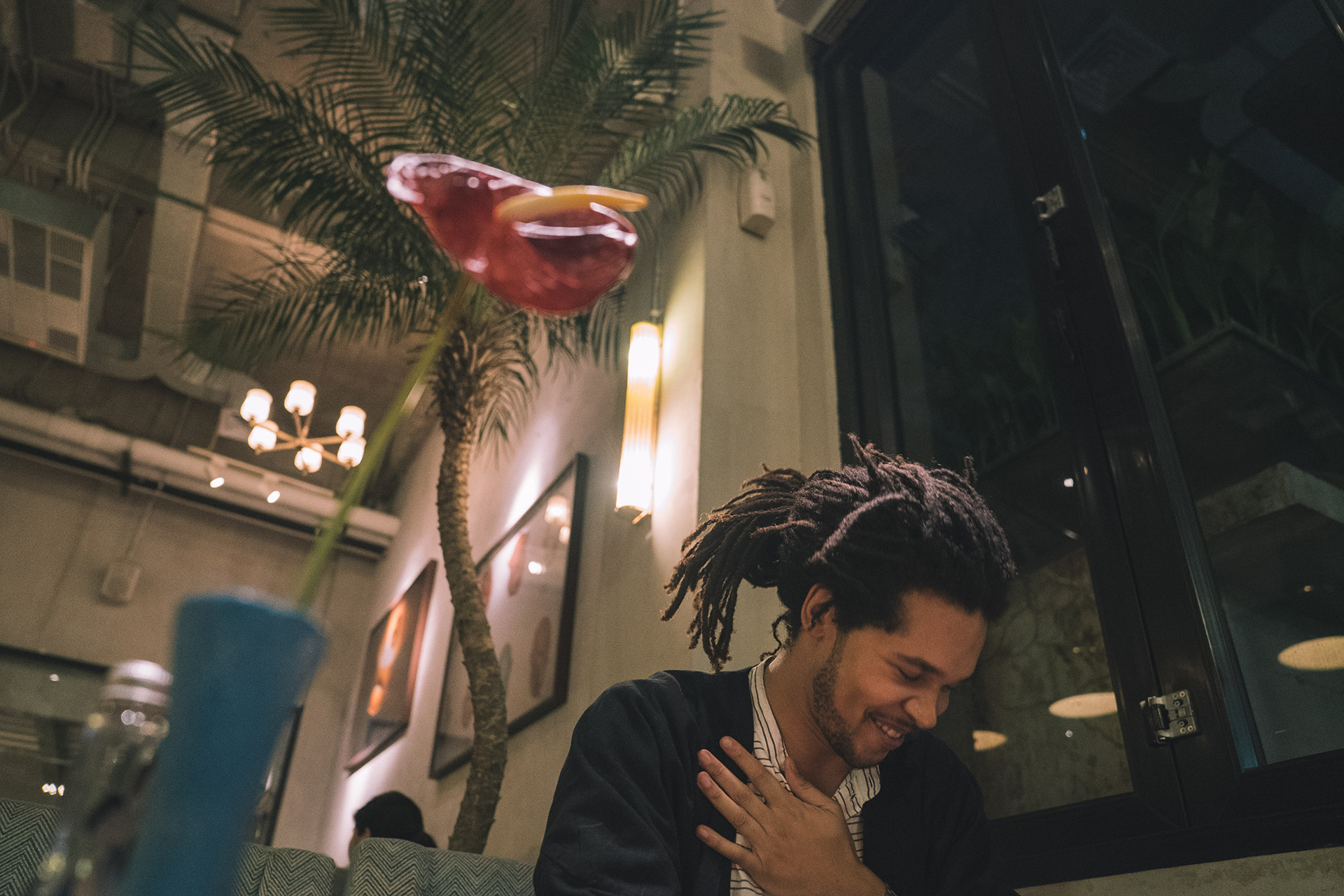
Foto: Moses Sihombing
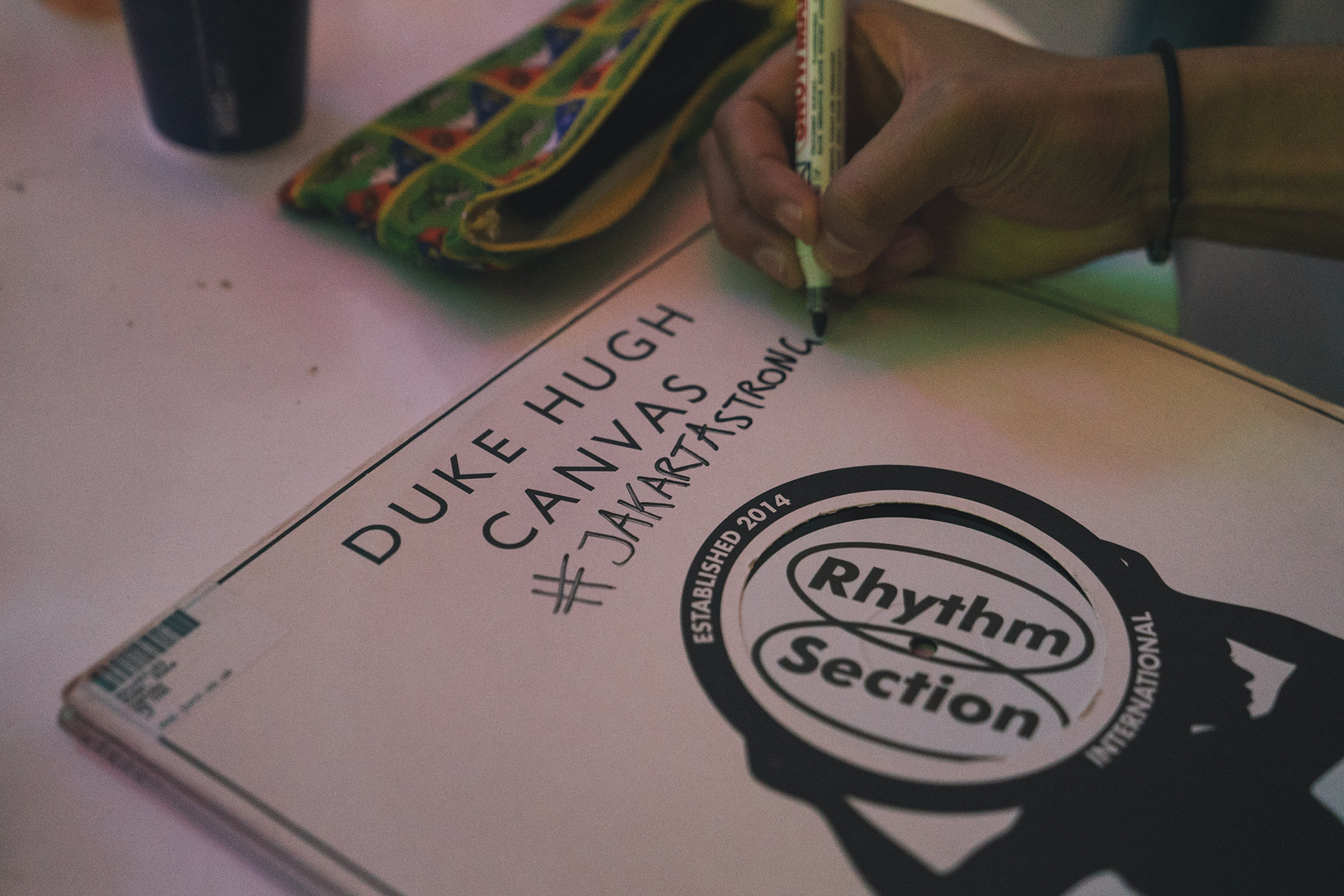
Foto: Moses Sihombing
So, we did make our own fun and it became kind of a destination and then slowly other people started coming to visit from different areas of town from Dalston, Shoreditch, Camden, wherever, and suddenly this idea of a “Peckham Scene” evolved, which is a real thing and it’s the thing that happened from a very grassroots way. But of course, like anything, when the secret is out and then attention gets turned toward that scene and things grow and then people come and move there, it changes. So, it’s still an exciting place, there’s still a lot going on there, but it’s different to when I moved there. The secret is kind of out and it’s evolving in a good way, it’s evolving in a way that’s quite independent and the gentrification is happening because that’s what happens in London. But so far it’s happening in a relatively manageable pace. But the reality is now, the people that moved in 5-10 years ago, are moving out because they can’t afford it because it’s getting too expensive.
So for me, it’s like a double-edged sword, it’s like you really love and care about the area, you want to do what you want to do there and you want that to be shared and enjoyed, but at the same time there’s this part of me that’s very aware that you’re contributing to the changing face of the area. So, when it’s an area where I really care about, it’s a conflicting thing.
The parties you hosted has a specific policy where it’s vinyl only, no headliners and no set times – it’s all about the party. What kind of message are you trying to give out to the people who came?
Well the message was not to be fixated about who’s playing and more to confer the whole night and enjoy the event, the feeling, and being together. Rather than constantly just looking at your watch, and instagramming, snapchatting, and tweeting about what’s going on and flocking to see who you wanted to see at whatever specific times. I wanted people to be there because they wanted to be there. And it takes a lot of time and dedication to kind of build that following and crowd and have people come for the right reasons. But the thing is, it paid off. And it’s just a really refreshing party, and I’m not saying it because it’s my party.
Although there’s a lot of DJs who are very good and quite rightly demand that kind of attendance, it doesn’t necessarily mean that the feeling of the whole night is going to be special.
I’ve played in many parties all over the world and there is a really special part at Rhythm Section that is rarely recreated. And it comes from putting in all the hours and nurturing a kind of community-based gathering that is based more around the people there and the energy of the whole night rather than just booking one DJ who’s really hyped that could definitely sell five hundred tickets. Although there’s a lot of DJs who are very good and quite rightly demand that kind of attendance, it doesn’t necessarily mean that the feeling of the whole night is going to be special. Certainly, when you’re starting out, it’s easy to start a party and book big names because you know people would come. I think you have to work your way up and earn that kind of respect and all that stuff so that you can host those big names and do it justice because if you’re just hosting big names, people are just going to see the names and not coming to your party. And if you start with friends, families, with people who you respect for what they could do rather than who they could pull, then you’re building a foundation and then as you grow, they grow with you. That’s a beautiful thing to see and then it has happened.
It’s same for the label. I didn’t sign Chaos in the CBD because I knew it would sell thousands of records. They were pretty much unknown. They’ve done a few records on loads of different label, they were both struggling in terms of work and money. Ben was on the dole, working in a bar once a week, Louis was working in a school for artistic children and they’d have maybe one gig a month and like really struggling to work. They were almost going to get back to New Zealand, they were going to give it a few moments and then they were going to give up because London is so expensive. I’ve known them for a while and I was always into what they did and then we became friends and we decided to work on this record, and it just blew up. And that record sold more than 8,000 vinyl records, probably 9,000. And that just set them off on this trajectory where now they’re kind of living the dream. They managed to use the money they made from music to go back to New Zealand but go back there as heroes and tour all around, and then come back and make a living from other things. So I think, putting time, energy and resources into upcoming, unproven acts that you really believe in is where you get the biggest satisfaction. And of course it’s nice to make a release that goes well, but it’s a lot more satisfying to make a release with someone essentially unknown and see it flourish rather than choosing whoever’s hot and of course selling a certain amount of records. I’m not interested in doing that. I always want to work with young, upcoming artists.
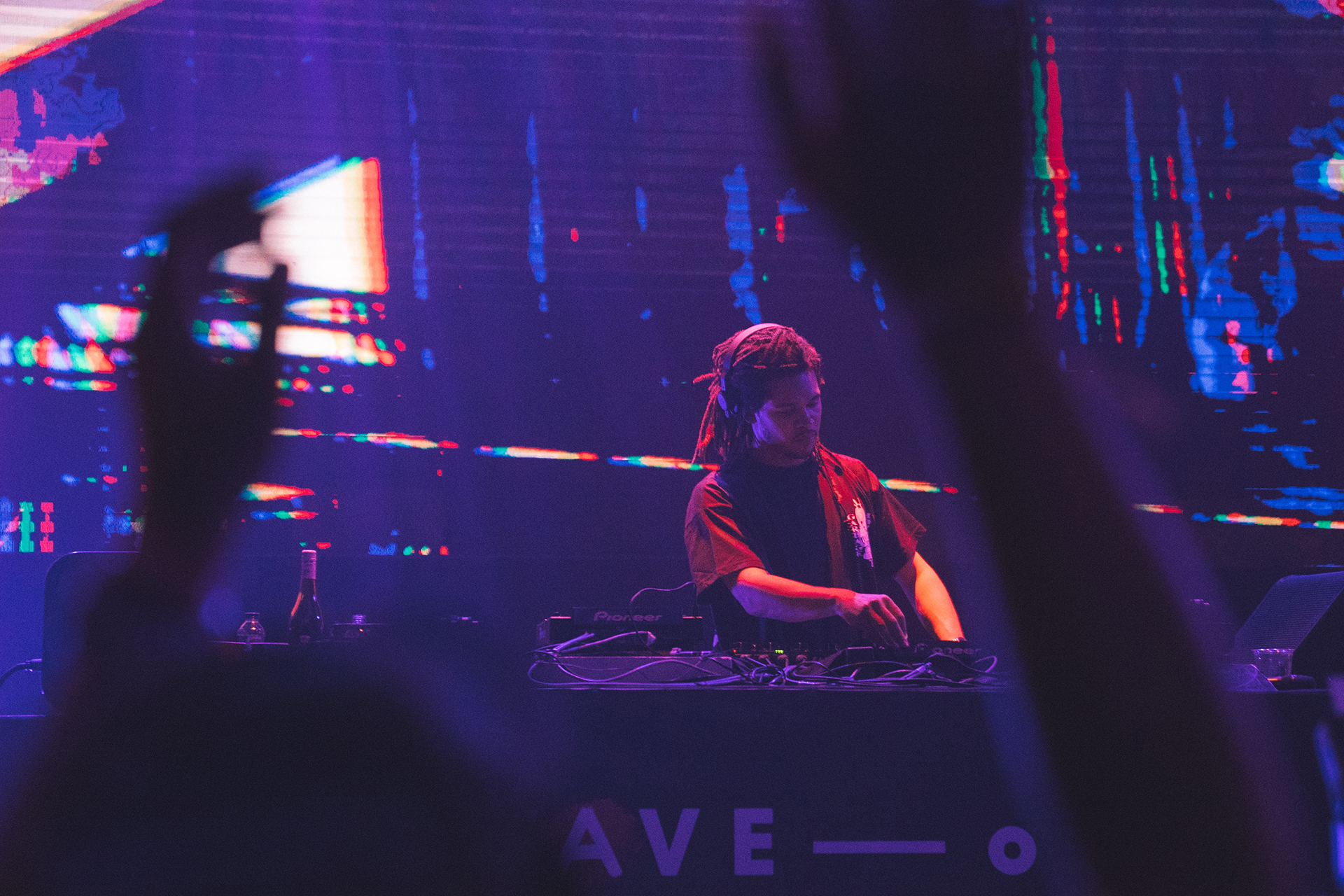
Foto: Moses Sihombing
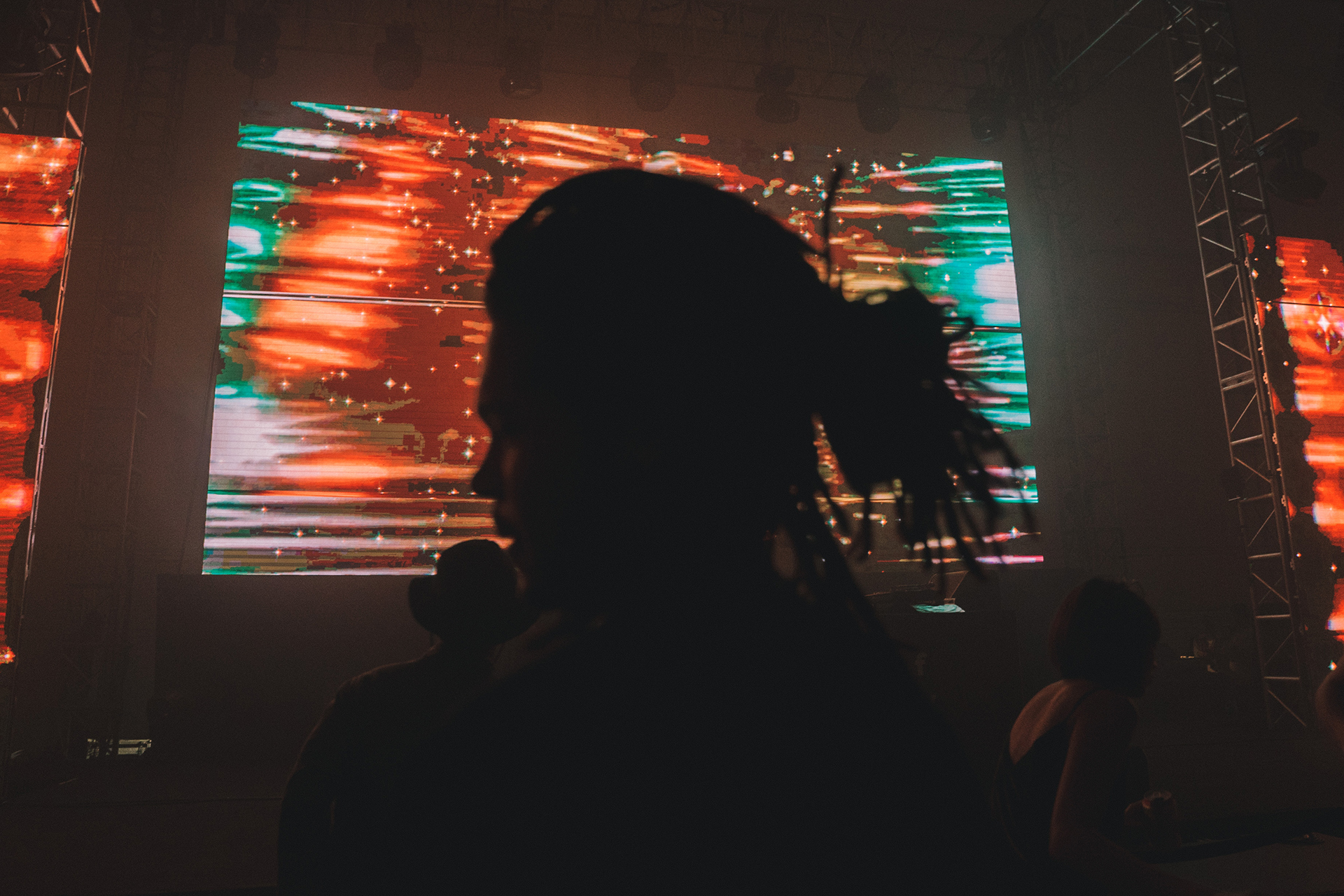
Foto: Moses Sihombing
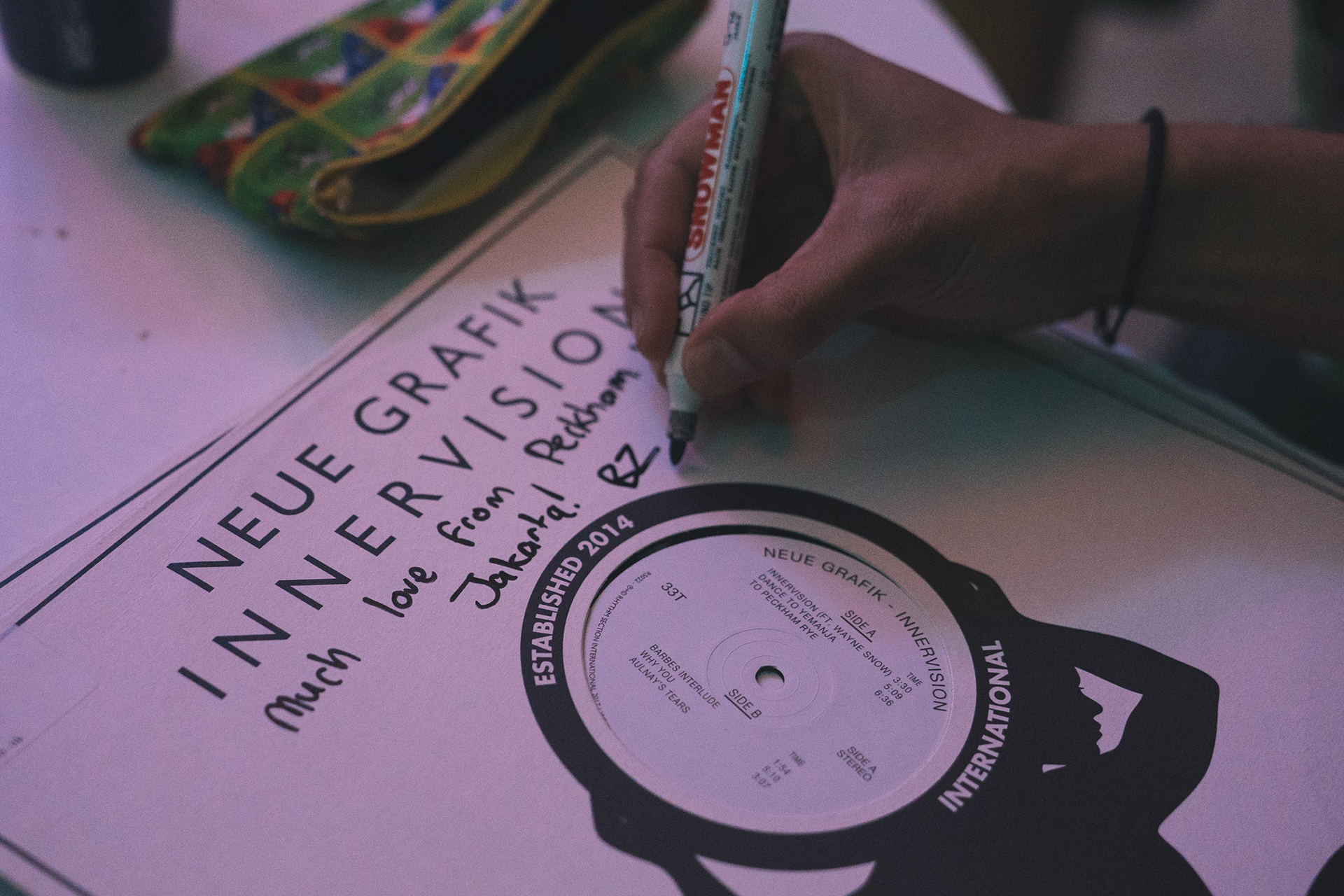
Foto: Moses Sihombing
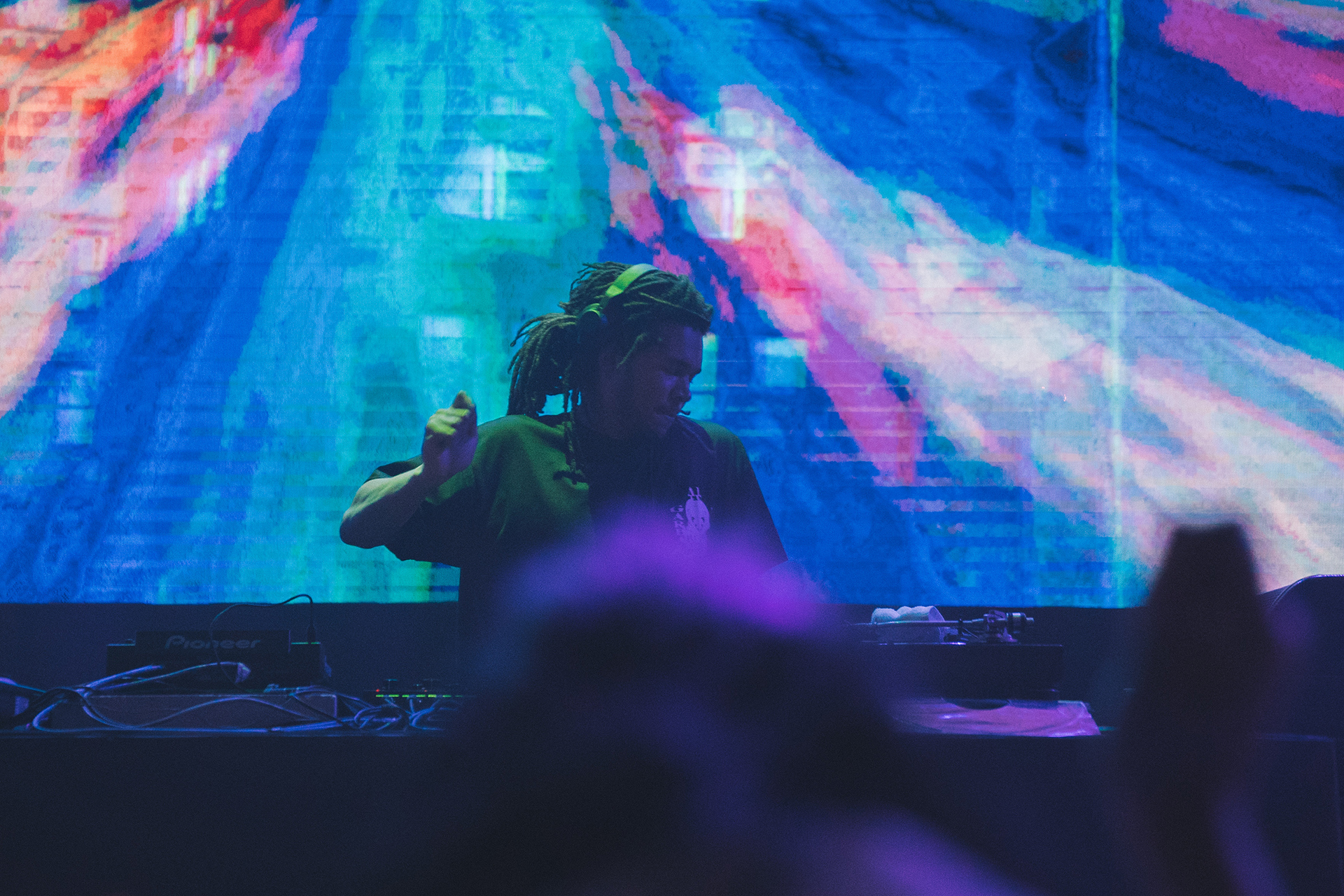
Foto: Moses Sihombing
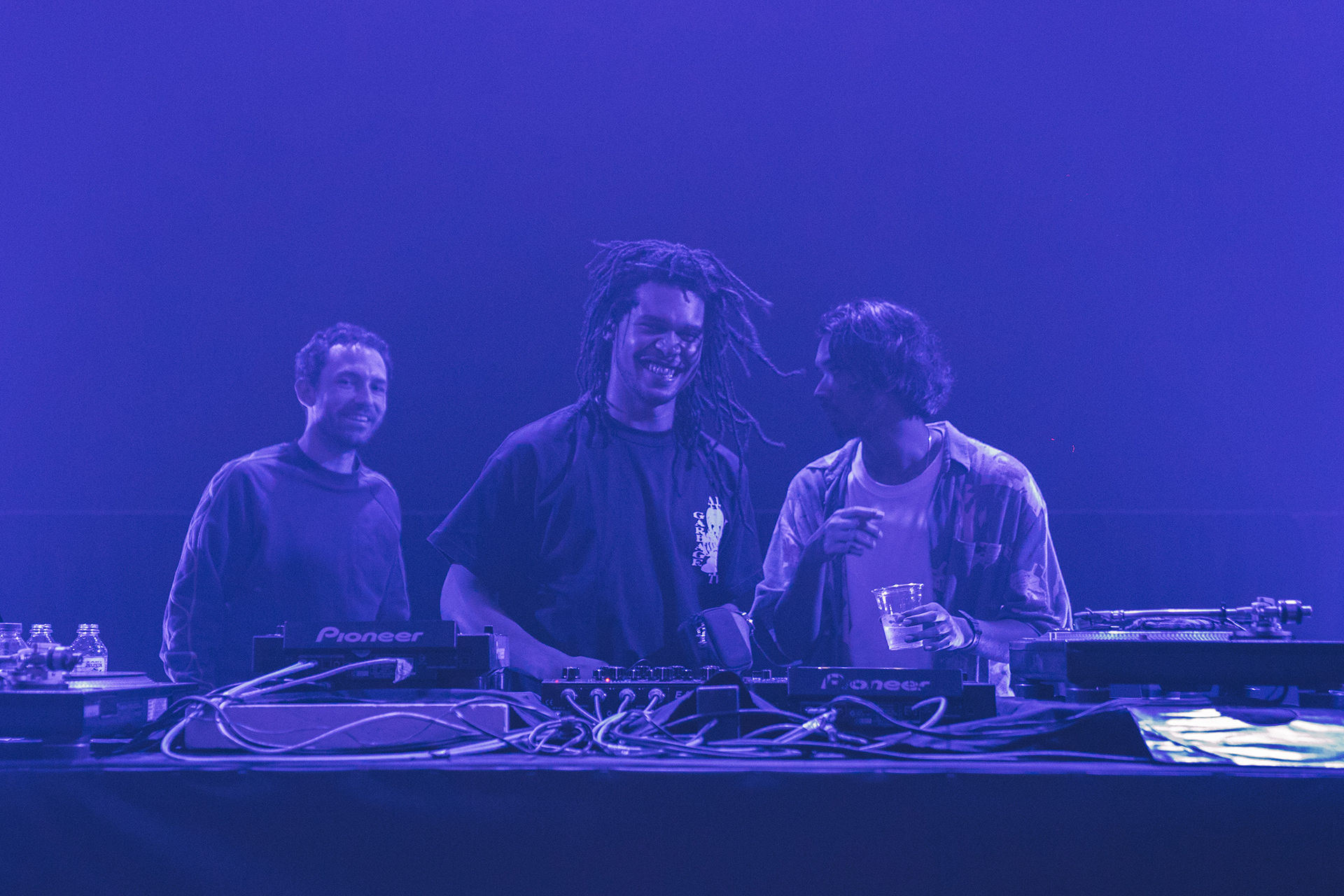
Foto: Moses Sihombing
Looking at your label’s roster, it has grown from signing your friends to artists from different parts of the world. What do you look for in new artists before signing them?
There’s not really anything particular that I’m looking at. If you listen to the catalog, there’s not really a style, genre or sound. It’s just the thing that clicks and things that make the hairs in the back of your neck stand up. Something that just gets you excited. Something that hasn’t been afforded to them by anyone else yet. It’s that feeling of giving someone that chance to kind of take what you believe and what they believe in to a different level – it’s exciting. I just know it when I hear it.
One of the things that set you apart from other DJs is that you’re purely a selector, which is quite rare in the current scene. Has this been your decision all along?
I don’t produce music. I think there’s lots of producers who are really good DJs, but I think there’s lots of producers who are really good producers and probably shouldn’t DJ. But the way that this world works, is – the way that you really make a living is by doing gigs. Not necessarily just from selling records because people definitely supplement their income through selling records and streaming, but until you’ve hit the very high level, it’s not enough to live on, really.
The way to make money is to go out on the road and to play. But that said, and it comes back to what I was saying about this idea of hype and booking people for their ability to create energy in the room, just because you make a good record doesn’t mean you can do that in real life. I think more and more people are understanding that and a lot of DJs that are coming through recently – and a lot of the residence in different cities who are becoming more well-known in the world is because the message is spreading, and the message is in their production, the aura they bring and the music they provide. I think that’s great.
I just don’t have time. In between doing the label, and in between doing all the radio and actually going out and playing, I don’t have enough time to get in the studio and I have a studio, we have a Rhythm Section studio, it’s part of our office. It’s enough to keep on top of new music and support all the artists and to present it on the radio. I’m going to focus on what I’m good at which is definitely those things and not try waste time making another mediocre house record. And I enjoy it and I think I’m good at it. I don’t think I can make a record that’s better than the people I admire. And I don’t want to waste my time or hurt anyone’s ears so I’ll just stick to what I’m good at.
What’s next for you in the future? Also, how about Rhythm Section?
Well, as you know I don’t like to make too many plans, but we’ve got some really exciting records coming out next year. A couple of singles, potentially this year we’re working on a new record and then a couple of bands that should see a release in 2019. And there’s also a record that I’ve been working on with Ruf Dug where I’m actually singing on it, so that is a world exclusive right there. So that’s one thing that’s happening next year. And then, just carrying on doing my thing. I’ve got a few exciting announcements to make next year in terms of residencies and touring and then it’s just really just being in the office and working with the team. Expanding the network and spreading the love.








